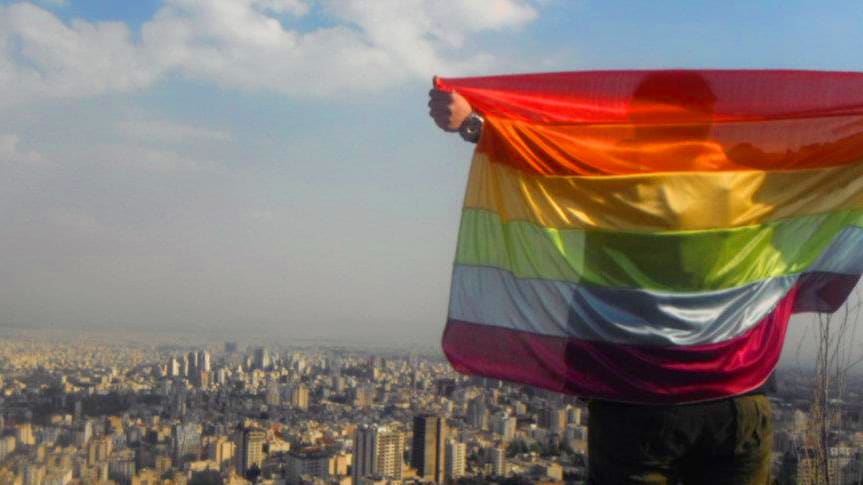
This event will be the launch of the special issue 'Queering the Middle East' published in the journal Middle East Critique.
What does the interaction between Middle East Studies and queerness look like? What does it signify? And why, if at all, does heeding this connection matter for both Queer and Middle East studies?
This special issue navigates these questions and more, including thinking through how the queering of the Middle East becomes a necessary task, through which a challenge to the field’s normative assumptions and systematising of violence, including through the use of the term “Middle East,” takes place.
Sabiha Allouche is Lecturer in Middle East Politics at the University of Exeter. Sabiha is primarily situated within feminist and queer studies. Her work engages with feminist approaches to violence, conflict, migration, and social mobility. Sabiha is dedicated to producing decolonized knowledge and to rethink sexed and gendered regimes in the MENA region beyond Eurocentric theoretical framing. Sabiha's article, 'Different Normativity and Strategic ‘Nomadic’ Marriages: Area Studies and Queer Theory' works through the concept of different normativity in order to recognize gendered and sexed epistemic paradigms that cut across postcolonial societies and initiate a dialogue that successfully displaces the US as the ultimate referent in queer studies.
Mert Koçak is a PhD Candidate at the Department of Sociology and Social Anthropology at the Central European University. He is also an associated PhD student at the French Research Center in Humanities and Social Sciences, Prague. Mert's academic interests are anthropology of policy, law, and bureaucracy, legalization and bureaucratization of gender, and queer migration studies. His current research focuses on queer refugees living in Turkey and how their presence in Turkey is legally unrecognized but bureaucratically tolerated. Mert's article, 'Who is “Queerer” and Deserves Resettlement?: Queer Asylum Seekers and Their Deservingness of Refugee Status in Turkey' scrutinizes UNHCR’s role in the asylum-seeking process in Turkey through which queer refugees’ experience of displacement finds a new meaning of being “deserving” of refugee status and resettlement to a third country.
Ladan Rahbari is Assistant Professor of Sociology at the University of Amsterdam, The Netherlands. Ladan is also a Senior Researcher at IMI – the International Migration Institute. Ladan's research interests include gender and sexual politics, race, migration, and digital media with a general focus on Iran and Western Europe, and within the frameworks of postcolonial, feminist, and critical theories. Ladan's current research engages with queerness in digital spaces. Ladan's article, 'Duffs and Puffs: Queer Fashion in Iranian Cyberspace', uses a combination of content and visual analysis on Instagram profiles dedicated to fashion to answer the question: ‘Is queer fashion present in Iranian cyberspace’ and if so, ‘How does it persist in spite of, and against the existing queer-phobic political forces?’.
Fadi Saleh is a PhD Candidate at the Institute for Cultural Anthropology and European Ethnology at the University of Göttingen, Germany. In his PhD project, he traces the recent emergence of Syrian LGBTIQ refugees as a constituency in discourses around humanitarianism, asylum, and queerness. Prior to the Syrian uprisings in 2011, Syrian queer and trans* populations were rather unknown and irrelevant to global LGBT politics, Western media, and humanitarian efforts. This changed considerably after the uprisings as representations steadily increased and proliferated on social media and in journalistic accounts. Fadi's article, 'Queer/Humanitarian Visibility: The Emergence of the Figure of The Suffering Syrian Gay Refugee', traces this shift and argues that queer and trans* Syrians became visible primarily through a queer/humanitarian media-visibility paradigm and the construction, consolidation, and circulation of the figure of the suffering Syrian gay refugee.
Walaa Alqaisiya is a Teaching Fellow in Gender, Sexuality and Conflict at LSE. Walaa's research commitment is grounded in grassroots concerns and aesthetic productions in the multi-layered and conflicted context of Occupied Palestine and the MENA region more broadly. She interrogates the value of decolonial, feminist and queer methodologies to advance the intellectual sovereignty of local knowledge(s) from the global south. Her article, 'Palestine and the Will to Theorise Decolonial Queering', posits a theorisation of decolonisation in relation to queer as it emerges from the settler-colonial context of Palestine, what she calls decolonial queering.
Join the conversation on Twitter using #LSEMiddleEast
LSE holds a wide range of events, covering many of the most controversial issues of the day, and speakers at our events may express views that cause offence. The views expressed by speakers at LSE events do not reflect the position or views of The London School of Economics and Political Science.
From time to time there are changes to event details so we strongly recommend checking back on this listing on the day of the event if you plan to attend.